We bring the learnings from the book “Deep Work” by Cal Newport as a summary that you will enjoy while reading.
Cal Newport studied the Theoretical foundations of our digital age; he has written about the impact of these technologies in our lives today and, most significantly, on our work. He is interested in mastering the ability to concentrate without distraction and believes it is one of the most valuable skills that is becoming increasingly rare. He has also written so good they can’t ignore you and three books popular among students full of advice.
Cal Newport’s deep work guides how to have focused success in a distracted world. This book is excellent for anyone looking to improve what you already do, master your work, and produce better results more efficiently. Although anyone living and working in the twenty-first century will be well aware of the abundance of distractions and the frantic pace life takes Newport’s book will help you overcome this and master your work.
“The deep work hypothesis: the ability to perform deep work is becoming increasingly rare while it is becoming increasingly valuable in our economy. Consequently, the few who cultivate this skill and then make it the core of their working life will thrive.”
Cal Newport first examines the deep work hypothesis and offers evidence to support it. Next, he explains the advantages of performing deep work. Secondly, using four core rules, Newport teaches you to take advantage of this hypothesis and train your brain, transforming your working habits.
The Deep Work Hypothesis
Cal Newport defines two types of individuals destined to succeed in the emerging digital age. 1) anyone who can work with intelligent machines and technology and 2) considered a ‘star’ in their field of work.
Newport defines the two most essential characteristics in these ‘successful workers’ as; 1) the ability to take on hard tasks/things and master them at pace, and 2) producing content/products/services at what can be considered an ‘elite level’ in both speed and quality.
Thus posing the question, how do you obtain these abilities? This is where the concept of deep work comes in. If you can perform deep work, you can handle these desired characteristics.
Learning Hard Things
The key to learning hard things at a pace is focusing without distractions. To learn efficiently, you need to perform deep work. Hard things are complex, and you must give them all your attention and focus. Without deep work, these things will take time to learn, and mistakes will be made.
High-quality work produced = (time spent) x (intensity of focus)
Newport explains that to produce content/work/services at an elite level, you must focus on a single task for long periods, completely without distraction. It’s this narrow focus that allows you to produce your best work.
Why is Deep Work Rare?
Newport questions why so many businesses encourage a culture based on being constantly connected, encouraging faster responses to requests, more exposure, etc. These are the behaviours that affect employees’ ability to produce deep work. Newport believes that the reason is due to the principle of least resistance; It all comes down to the simple reason; because it’s easier. Newport thinks that workers today are running what he describes as an “increasingly visible business” because they do not know another way to portray their value.
” Business as a proxy for productivity: in the absence of clear indicators of what it means to be productive and valuable in their jobs, many knowledge workers turn back toward an industrial indicator of productivity: doing lots of stuff visibly.”
Newport sums it up; “deep work is hard and shallow work is easier, and in the absence of clear goals for your job, the visible busyness surrounding shallow work becomes self-preserving.”
Why should we perform deep work?
“Deep work is an activity well suited to generate a flow state. Flow state is the phrase used by psychologist Mihaly Csikszentmihalyi to describe notions of stretching your mind to its limits, concentrating, and losing yourself in an activity. All of which also describe deep work. And as we just learned, flow generates happiness. Combining these two ideas, we get a powerful psychological argument in favor of depth. Decades of research stemming from Csikszentmihalyi’s original experiments validate that going deep orders the consciousness in a way that makes life worthwhile.”
It becomes clear that to extract meaning from your profession, deep work is the answer. It can assist you in cultivating your skills and transforming a knowledge-based, distracted job into satisfying meaningful, and successful work.
How?
Cal Newport has developed four core rules to help you take advantage of deep work and master your work.
1. Work Deeply
“The key to developing a deep work habit is to move beyond good intentions and add routines and rituals to your working life. This is designed to minimize the amount of your limited willpower necessary to transition into and maintain a state of unbroken concentration.”
Newport discusses the following points as crucial to getting the most out of deep work sessions:
Decide where you’ll work and for how long. Then, create a zone where you can allow yourself to focus.
● Decide how you’ll work once you start; what are your processes?
● How will you support your work? For example, do you need to be fuelled adequately before you begin? Or try some light exercise?
Newport mentions the importance of downtime and freedom. Allowing you this time assists you in really knuckling down when required to get your deep work done.
● Downtime can aid your insights.
● Downtime helps recharge the energy needed to work deeply.
● You have a limited capacity for deep work on any given day. So try and get it done during the workday and use evenings primarily for downtime.
2. Embrace boredom
Newport identifies the problem with our fast-paced lives: our brains have been re-wired and expect and request distraction. We check our smartphones at any moment of ‘potential boredom,’ whether waiting in a queue or when your friend pops into the bathroom. This means our brains are accustomed to looking for distraction; there is no space left for deep work.
Newport suggests that we re-arrange our schedules, rather than scheduling a break from distractions, to focus, instead start preparing breaks from focus to give in to those distractions. A way to combat this is to practice productive meditation.
“The goal of productive meditation is to take a period in which you’re occupied physically but not mentally—walking, jogging, driving, showering—and focus your attention on a single well-defined professional problem. “
The key to triumphant, productive meditation is repeatedly returning your attention to the problem and doing this whenever your mind wanders. You have to practice this to reap the benefits continually.
“As a novice, when you begin a productive meditation session, your mind’s first act of rebellion will be to offer unrelated but seemingly more interesting thoughts. When you notice your attention slipping away from the problem, gently remind yourself that you can return to that thought later, redirect your attention back.”
3. Quit Social Media
Newport acknowledges that the internet is an integrated component of our lives and doesn’t suggest that we stop using the internet altogether. However, he poses the challenge of quitting social media, to begin with, for just 30 days. And then asses the trial period. Were the days without social media, in any way, worse than when you could check your Facebook feed? Did anyone notice or care that you were no longer using social media? (Note, Newport encourages you to stop using the services for 30 days, do not formally deactivate your accounts or announce it to your following, stop checking it.)
Further to quitting social media, Newport encourages you to assess your internet consumption habits. To truly achieve deep work, you must actively reject the distracted world of connectedness. It’s essential to stop using the internet as ‘entertainment.’ Instead, do more meaningful things with your mind, leaving you feeling more fulfilled than spending your day semi-consciously browsing the net.
“If you want to eliminate the addictive pull of entertainment sites on your time and attention, give your brain a quality alternative. Not only will this preserve your ability to resist distraction and concentrate. But you might experience, perhaps for the first time, what it means to live, and not just exist.”
4. Drain The Shallows
” Treat shallow work with suspicion because its damage is often vastly underestimated and its importance vastly overestimated. This type of work is inevitable. But you must keep it confined to a point where it doesn’t impede your ability to take full advantage of the deeper efforts that ultimately determine your impact.”
Newport suggests that you begin by scheduling your entire day. Having structure in your day means having a comprehensive schedule but being open to adapting or modifying plans. This structure means you have fewer opportunities to delve into ‘shallow work.’ If you have an over-flexible, unstructured schedule, you can find yourself on social media, doing unproductive tasks and mindlessly browsing the web before you start new jobs.
“With structure, you can ensure that you regularly schedule blocks to grapple with a new idea, work deeply on something challenging, or brainstorm for a fixed period. This is the type of commitment more likely to instigate innovation.”
Newport identifies an advantage of the more structured approach is that it can visually represent how much time you are working on deep work and how much time is spent on shallow activities. Assess the ratio and adjust so that most of the day is focused on deep work.
Tips & tricks
Newport has a few tips for avoiding shallow work and encouraging deep work;
● Make people who send you emails do more work. Consider sender filters to filter the more essential emails as separate from the time-wasting ones.
● Do more work when you send or reply to emails. Rather than sending quick short-term responses that may require more work later, asses the email. Can you fulfil all requirements right away? Be efficient with email; don’t put things off that can be dealt with immediately.
● Don’t respond. Not everything needs a response, and that’s ok. It would help if you learned to be comfortable with this, but soon enough, you will see the benefits.
Stop Being Busy
” The deep life, of course, is not for everybody. It requires hard work and drastic changes to your habits. For many, there’s a comfort in the artificial busyness of quick email messaging and social media posturing. But, simultaneously, the deep life demands that you leave much of that behind. There’s also an uneasiness surrounding any effort to produce the best things you’re capable of producing, as this forces you to confront the possibility that your best is not (yet) that good.”
Newport describes a life rich with productivity and meaning; the road to this life is engaging in deep work, allowing your mind to work to its capacity, and overcoming your comforts and fears. It’s entirely possible; you won’t look back once you start.
Key takeaways
- If you want to have the ability to learn complex tasks quickly and produce quality content/products/services, you need to engage in deep work.
- Deep work is rare because shallow work is more accessible. Engaging in deep work takes time and effort, but you will experience the benefits once you start.
- There are four rules to follow if you want to maximize your productivity and work:
- Work deeply
- Embrace boredom
- Quit social media
- Drain the shallows.
Deep Work Book Review
“Deep Work” by Cal Newport is a game-changing book that delves into the concept of focused, distraction-free work and its importance in today’s fast-paced, technology-driven world. Newport argues that the ability to perform deep work is a rare and valuable skill, one that is essential for achieving success and satisfaction in our professional lives.
As a reader, I found the book informative and inspiring. Newport provides practical strategies for cultivating a deep work mindset, such as setting clear boundaries, scheduling focused work sessions, and embracing solitude. He also shares real-life examples of individuals who have successfully implemented these techniques, which adds credibility to his claims.
One aspect of the book that particularly resonated with me was the emphasis on the importance of minimizing distractions, especially from social media and email. Since reading “Deep Work,” I have made a conscious effort to limit my exposure to these distractions and noticed a significant improvement in my productivity and focus.
In conclusion, “Deep Work” is essential for anyone looking to improve their productivity, creativity, and overall work performance. Cal Newport’s insights and practical advice will inspire you to make meaningful changes in your work habits and achieve your full potential.
Contents

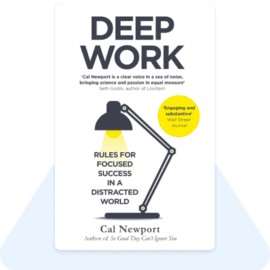
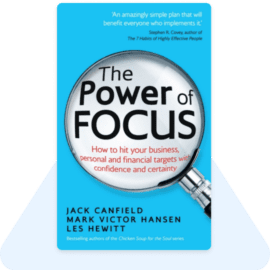

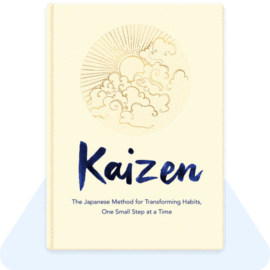
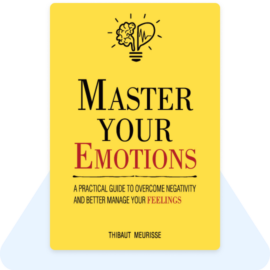
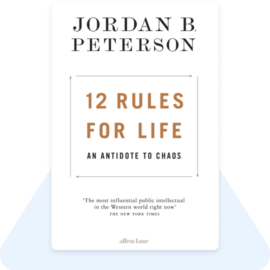
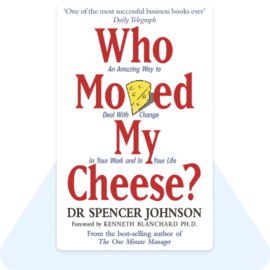
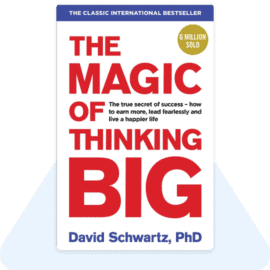

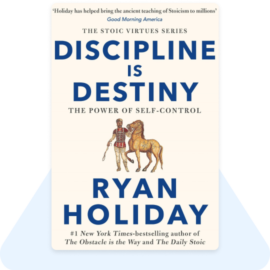
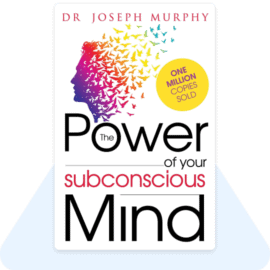

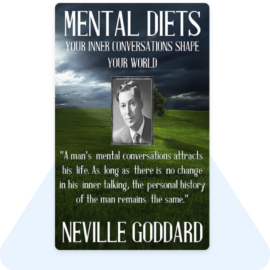
Book- Deep work
Deep work is not accessible to everyone. It is an essential skill, which has been rare in this distracted world. We need to quit social media, embrace boredom and drain the shallow work to do deep work. Deep work is necessary for great success.
Day 5, Deep work, by Cal Newport.
Multitasking and distractions affect the productivity of a person. Success requires laser like focus and proper time management.
Thank you amit sir and Rbc.
5 th day completed thanks
Day 5 – 28 Days Reading Challenge
FLOW STATE: DEEP WORK
Day 5, Deep work, by Cal Newport.
The world faces a major problem in the form of multitasking and distractions which affect the performance of the person. For a person to be successful, he should have a laser like focus, and utilize his time and energy on one task at one time.
Doing multitasking leads to loss of time and energy and, the desired result is not obtained.
Thank you, Amit sir.
Reading challenge accomplished.